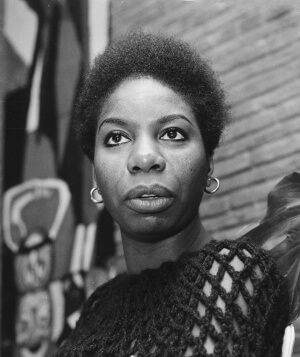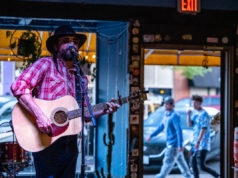
The news has exceedingly covered Beyoncé’s performance over her new single Formation at the Super Bowl.
To my understanding, this song is calling on the African-American community to unite and get in “formation” once again to fight against racial injustices. Essentially, this is a Black Lives Matter anthem fueled by Beyoncé’s heritage and her husband’s recent activism in the movement.
Activism in music by black artists isn’t something new, though. Beyoncé can be seen as taking a page out of Nina Simone’s handbook.
Nina Simone brings the movement to her music

Simone would have been 83 on Sunday. She took a huge risk when she began to sacrifice her music career for her personal convictions. For her, a song was more than a song, and being a public figure was more than just having a talent: The difference the artist can make with this apparatus takes precedence. She took fame beyond its superficial sentiments and used her status to make a difference.
The tool for Simone’s activism was what she knew best: music. Although she had been pushed into the pop world against her will, her talent in the genre is undeniable. She was always aggravated that she could not perform classical music, which was the music she truly loved. When she appeared at Carnegie Hall, she noted disappointment in how she would not be performing classical music.
Mississippi Goddamn
Simone’s aggravation came to a head when she wrote the song Mississippi Goddamn. My first take from this song centers around the risk she took with the title and composition’s content. Artists today can make many statements without repercussions, but Simone lived in a different America. Instinctively, she had to have known the consequences she would receive from the mostly white music industry and the conservative public at large. This song posed a risk that could potentially kill her career and damn it to hell.
Second, and most important, this song took a risk by highlighting a contentious and current issue. Simone’s musical talent had now become her tool, and through it she disseminated a message that all of America needed to hear. Racial injustices, ranging from segregated bathrooms to a church bombing that killed four black children in Birmingham, Ala., had to be stopped.
Nina Simone refused to sit idly by, especially when she knew her stature with the public could make a lasting impact. Instead, she changed her music into a movement. She fed the anger of the African-American community, a community that needed a rallying cry to achieve civil rights and defeat segregation.
The present mirrors the past
Today, we find ourselves in a similar situation, as evidenced in the news and, now, in music published by African-American artists. These sentiments are being met with archaic resentment and anger from many groups. Many against this movement are not willing to take a step back and ask themselves why these statements are being made and why protests keep occurring. There are reasons, and that is why the new movement grows.
Instead of trying to fight this movement by chanting obscure and arbitrary facts and notions, let us remember that there are feelings and emotions involved. Although the facts have a place and time, human nature is not a solved science, and emotions do not occur without a trigger.
Let’s become reactive and proactive
I’m ready to roll up my sleeves and bridge this gap. I’m ready to take the anger of Ms. Simone and bring justice to the wronged. Let’s become reactive and proactive. I don’t want to fight or have confrontation; I want solutions. I want reasoning. I want common ground. I don’t want these emotions to ever be felt again, even if that means I have to lay my ideology and thoughts down. Let’s not make the same mistake as others before us.
It’s time for a solution that can only be achieved beyond personal theories and convictions. We can’t let the achievements of the revolutionaries of yesterday, like Nina Simone, be crumbled by uneducated thought today. It’s time to look at each other with an open mind, with a willingness to understand each other.
Goddammit, is that too much to ask for?






















